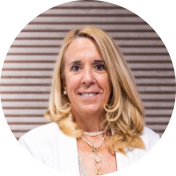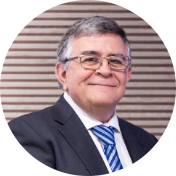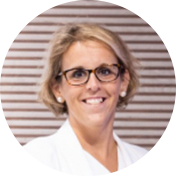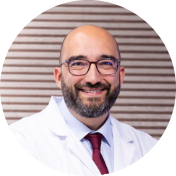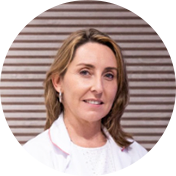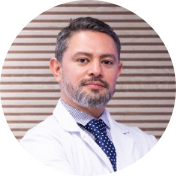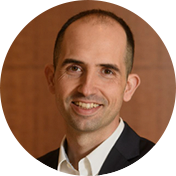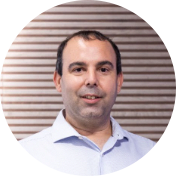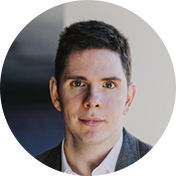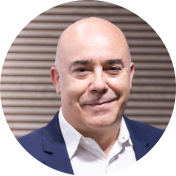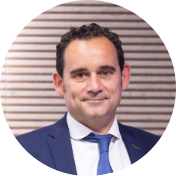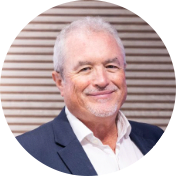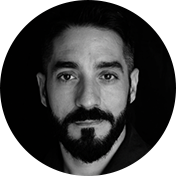Digitalization and Management of Personalized Medicine in Cancer

A total of 2,000 patients with non-hematological metastatic tumors will take part in the Dipcan studio from 2022 to 2024.
This project offers oncology patients the possibility to be part of this observational studio without cost. They will receive a complete analysis of the sickness that will include standard clinical, genomic, anatomopathological and radiomic data. This information will help professionals to have a better understanding of the patient’s sickness and condition.
What Is the Process to Get into A Dipcan Study?
1. The study participants will have access to a visit from a clinical research oncologist who will collect clinical data from the patient.
2. First, they will get a blood test and have at all times a systematized clinical history.
3. Then, they will get a total body MRI (from the brain to the extremities). This means that from a radiomic point of view they will get precise information of how the patient’s tumor is.
4. They will get a complete anatomopathological study using digital pathology technologies which will allow a complete study of the specimen and determine the most suitable tumor area for a molecular analysis.
5. Finally, different mutations present in the tumor will be studied with NGS techniques and genetic expression with Nanostring technology. To complement it, a SNIPs batteries will be analyzed as well to molecularly know the tumor.
6. Once all the tests have been completed, the patient will go will get a last visit to receive the results and advice from the oncologist at MD Anderson Cancer Center Foundation Spain.
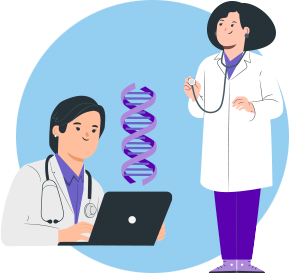
AI And Big Data, What Do They Bring to Oncology
Big Data could be a great help when it comes to medicine and health. The Dipcan study aims to be the first step in integrating AI and Big Data into health care and to shape the way to know how to do it and replicate it in the future.
Accurate and high-quality patients’ clinical data, as well as the pathological anatomy information and MRI image, allows the correlation of molecular data with these other data. Thus, relations between this information could be establish through an algorithm that works with Big Data and AI which could be useful for the diagnose, prognose and/or treatment of the patients.
What Would Technology Bring to The Dipcan Study?
The Dipcan algorithm will be an example of how to systematize the collection of medical data in a way that is intuitive, agile and provides value in daily clinical practice.
Thanks to the data correlation the AI algorithm could build, it is possible that some now unknown questions regarding diagnose, prognose and treatment of metastatic cancer patients could be answered.

The Union Between Oncology and Technology
Through new technologies, the Dipcan project aims to make a digital transformation in health by revolutionizing the clinical practice of cancer. Through a detailed study of the data (clinical, genomic, anatomopathological and radiomic data), the algorithm will bring a multidimensional and specific knowledge of cancer in the Spanish population.
The aim is to bring together different medical disciplines with computer and technological knowledge, so that oncologists can make better decisions to improve the patient’s quality of life and survival on a case-by-case basis.
In this sense, the results could be used for daily clinical practice in the area of oncology, with a commitment to the development of personalized medicine, achieving the simulation of the data of the subject under study. This would be possible because the aim of the study would be for the algorithm to offer the possibility of, among others:
This is how the AI algorithm will help to better understand tumors and allow the development of personalized medicine health strategies to prevent, initially diagnose and treat the most prevalent tumors at the population level in a more cost-effective way.
This algorithm will be available in all Spain and would allow for a systematization of data from all regions to facilitate a personalized medicine approach to cancer. For example, from a unique biopsy or an MRI we could know what could happened to a patient on the future and make decisions from this precise medical perspective.
“Together we build the medicine of the future”
Who Make the Dipcan Study Possible?
The Dipcan Study is a project formed by a committee of seven entities. The scientific director of the project is Mr. Enrique Grande, Head of the MD Anderson Cancer Center Madrid Oncology Service and Head of Clinical Research at the MD Anderson Cancer Center Spain Foundation.
The MD Anderson Cancer Center Foundation Spain is a leader in cancer research together with the MD Anderson Cancer Center Madrid Hospital, which is an excellence and referent center for the cancer treatment in Spain and Europe.
Eurofins Megalab is a multinational and clinical company leader. It is a pioneer in clinical genetics and molecular pathology. It will coordinate the project and will carry out clinical analyses, as well as genomic and anatomopathological studies.
Genomcore is a digital solution leader for the implementation of personalized medicine. It will bring its expertise in biomedical governance data and bioinformatic analysis.
Artelnics is a company specialized in the development and application of the AI techniques. It will be in charge of generating the machine learning models from the data collected.
Pangaea Oncology is an oncology molecular diagnose reference specialized in liquid biopsies and Next Generation Sequencing. It will be in charge of the analysis and interpretation of the liquid biopsies of the patients and the tumor genetic expression.
Atrys Health is a global company that provides diagnostic and precision medical treatment services. It is a pioneer in last-generation telemedicine and radiotherapy. It will be in charge of the Big Data analytical and clinical validation of the AI platform and the genomic data quality control.
Quibim is the leading company for virtual biopsies with medical images development, which applications on radiology diagnoses processes and discoveries of new therapeutical molecules with the main pharmaceutical companies. The company has CE- and FDA-approved medical device products and manages databases of more than 10 million medical images and focuses its developments on the fields of oncology-immunotherapy, rheumatology and neurology. The company also participates in the largest international research committees and cancer imaging biobanks. Quibim will process MRI scans for the extraction of radiomic data in this project.
Biographies

As Business Manager of the Eurofins Megalab’s Genetics Unit, her role as a member of DIPCAN is to direct and coordinate the genetic analysis of the samples, with the aim of identifying characteristics that may benefit the patient to receive targeted treatments or participate in various clinical trials.
Mamen holds a degree in Biological Sciences from the Autonomous University of Madrid and a PhD in Medicine and Surgery from the University of Alcalá de Henares and a Specialisation Course in Clinical Genetics from the same institution. She is currently accredited by the Consejería de Sanidad de la Comunidad de Madrid as Head of the Genetics Unit. She has nearly 30 scientific publications related to Clinical Genetics and has been a lecturer on the Specialisation Course in Clinical Genetics at the University of Alcalá de Henares.
He is responsible for the management of the Anatomical Pathology laboratory at the DIPCAN study. His role is focused on managing and coordinating the histopathological study and the digitisation of the tumour sample.
José Ramón has a degree and a PhD in Medicine and Surgery from the Universidad Autónoma de Madrid. His speciality is Pathological Anatomy, and he is currently the Head of this same Unit at Eurofins Megalab. Previously he spent a large part of his career as Head of the Forensic, Molecular and Immunohistochemistry Pathology Section, and as Head of the Pathology Department at various hospitals. José Ramón has also worked as an associate professor in the Faculty of Medicine at different universities and has participated in 40 publications and numerous congresses, obtaining international and national awards for the best communications.
As Business Development Manager for Oncology and Genetics at Eurofins Megalab, her role as a member of DIPCAN is to support the overall management of the project.
Carlota holds a degree in Biology from the University of Barcelona and a PhD in Morphological Sciences from the Autonomous University of Barcelona. She also holds a master’s degree in experimental sciences and biomedicine from the University of Barcelona and an MBA in hospital management from ESADE. She has spent most of her career in the study of biomarkers for cancer, both haematological and somatic, using all types of technologies, from FISH to NGS. Carlota has also participated in numerous national and international conferences, as well as in more than 50 publications, including 2 Natures.
She is in charge of coordinating the management of the DIPCAN project at Eurofins Megalab.
Marta holds a degree in Biochemistry from the Autonomous University of Madrid and a master’s and PhD in Cancer Biology and Clinical and Translational Medicine from the University of Salamanca. She has spent a large part of her career in the application of massive sequencing techniques in the study of oncology patients and their impact on the diagnosis, prognosis and treatment of patients. Marta has also participated in numerous national and international conferences, as well as in more than 15 publications and 11 national and international projects.
Doctor Enrique Grande is the driving force behind the DIPCAN project. He is responsible for and in charge of the Phase I Clinical Trials Unit at the MD Anderson Foundation in Spain, where DIPCAN patients will be provided with the necessary personalised medical care and service.
Dr. Grande holds a Doctorate in Medicine and a master’s degree in Molecular Oncology of Cancer from the Spanish National Cancer Research Centre (CNIO). He is a founding member and former president of the Spanish Group of Orphan and Infrequent Tumours (GETHI), he is also part of the Spanish Group of Neuroendocrine and Endocrine Tumours’ (GETNE) board of directors, and he is an active member of the Spanish Group of Genitourinary Tumours (SOGUG). He is the author of more than 200 publications in international journals and has dedicated his career to the clinical development of some of the main drugs currently available for the treatment of renal cancer, bladder cancer, thyroid cancer, and neuroendocrine tumours.
Her role is to advise on the correct coordination of the study, ensuring that all standards of good clinical practice are met.
She has a degree in Nursing from the European University of Madrid and has experience in clinical trials since 2004 as Coordinator of Phase I-IV Clinical Trials in different pathologies. She is Coordinator of the Phase I Clinical Trials Unit of the MD Anderson Cancer Center Spain Foundation and member of the Spanish Society of Medical Oncology (SEOM-CICOM). She has collaborated in expert courses on “Monitoring in Clinical Research in Medical Oncology” given by the San Pablo CEU University and has collaborated in different advisory boards.
Together with Dr. Enrique Grande, he is the clinical head of the DIPCAN study where he coordinates the development of the study from the MD Anderson Cancer Center Spain Foundation.
A graduate in Medicine with a residency in Medical Oncology at the Puerta del Hierro University Hospital in Majadahonda, he is a Doctor in Medicine and Surgery with a Cum Laude qualification from the Autonomous University of Madrid. He currently works as a Medical Oncologist in the Multidisciplinary Thoracic Tumour Unit at MD Anderson Cancer Center Madrid and is a member of scientific societies such as the Spanish Society for Medical Oncology (SEOM) and the European Society for Medical Oncology (ESMO). He is also a member and active collaborator in cooperative groups such as the Spanish Lung Cancer Group (GECP), the Spanish Sarcoma Research Group (GEIS) and the Oncology Group for the Study and Treatment of Lymphomas (GOTEL).
He is Quibim’s principal investigator on the DIPCAN project. His role within the project as technical coordinator is focused on monitoring the fulfilment of objectives and promoting, if necessary, a contingency plan. In addition, he is also in charge of coordinating, from a technical perspective, the planning and organisation of the project activities.
Ángel Alberich-Bayarri holds a degree in Telecommunications Engineering from the Polytechnic University of Valencia and specialises in electronics. He is the founder and current director of the company Quibim, dedicated to the analysis of medical images using artificial intelligence. His extensive and award-winning career has taken him to the classrooms of the Polytechnic University of Valencia and the University of Valencia, where he also teaches in the Faculty of Medicine. He also teaches at the University of Zaragoza the master’s degree in Biomedical Engineering and at the University of Granada the master’s degree in Diagnostic and Therapeutic Radiology.
His role is to provide support and advice when generating the machine learning models from the data collected to develop DIPCAN’s artificial intelligence algorithm.
He holds a degree in Physics from the University of Salamanca, a master’s degree in Computational Physics from the University of Salford (UK) and a PhD in Artificial Intelligence from the Polytechnic University of Catalonia. Roberto is the founder and CEO of the artificial intelligence company Artelnics. He has more than 20 years of experience in algorithm development and application of artificial intelligence at Tata Steel, the International Centre for Numerical Methods in Engineering (CIMNE) and the Polytechnic University of Catalonia and Artelnics. He is also the lead developer of the the open neural network library OpenNN and of the machine learning and data analytics platform Neural Designer.
His role in the DIPCAN Study is to advise and provide the necessary technical services to include in one platform all the data concerning the patient’s medical history, the MRI images and the radiological report, the digitalisation of pathological anatomy images and the molecular data from massive sequencing and gene expression analysis.
A computer engineer from the Polytechnic University of Catalonia and with a PhD in Biomedicine from the University of Barcelona, Oscar was awarded the Extraordinary PhD Prize for his work on the analysis of genetic and epigenetic data. This was a joint programme for computational biology between the Barcelona Institute for Biomedical Research, the Barcelona Supercomputing Center and the Barcelona Centre for Genomic Regulation. In early 2015, Oscar Flores and Miquel Angel Bru founded Genomcore / Made of Genes.
His role is to coordinate and manage the creation of the platform that will integrate the clinical, radiological, genetic and anatomopathological data in the DIPCAN study, acting as the person responsible for the data integration and transfer processes.
David holds a degree in Molecular Biology and a master’s degree in Applied Statistics from the UNED. His extensive experience in leading multidisciplinary teams working at the frontier between biomedicine and data science has led him to become the Director of Clinical Bioinformatics at Genomcore. He is the co-author of more than 100 publications in international journals and has been teaching postgraduate classes for more than 20 years at the National School of Health, the Complutense University of Madrid and the Francisco de Vitoria University, among other institutions. Currently, he is also an associate professor at IE University where he teaches Strategy and Health Analytics in the master’s in business Analytics & Big Data organised by the IE School of Science & Technology.
His role at DIPCAN is to perform the analysis and interpretation of tumour gene expression in liquid biopsy, where Pangaea is an international reference.
Javier is co-founder of Pangaea Oncology and its CEO since 2012. He holds a degree in Economics from the University of Nevada, an MBA from San Francisco State University, a CFA (Chartered Financial Analyst) certification, and has recently completed the Exponential Technology Executive Program at Singularity University (Mountain View, CA). His professional career, prior to the creation of Pangaea, has been linked to investment banking, where he has held positions as an equity analyst at Banco Santander and has been co-head of European Small & Mid Caps at the Dutch ING Group, focusing on capital markets operations in the healthcare and biotech sectors.
He is the project coordinator at Atrys of the DIPCAN study and manages the implementation of the clinical and analytical validation of the AI platform and the expansion of clinical uses.
He holds a degree in Biology and a PhD in Genetics from the Complutense University of Madrid. He is the founder of one of the first biotech spin-offs in the country, SUPER SEED BIOTECH. Subsequently, he was a full time professor of Physiology and Biotechnology at the University of Segovia. He also was Director of the Biotechnology Innovation Circle of the Community of Madrid and Researcher at the Subdirectorate General for Research in Cell Therapy and Regenerative Medicine of the Carlos III Health Institute. Later, he developed his professional career in the Ministry of Health, as Director of Programmes of the General Directorate of Advanced Therapies and Transplants and as Advisor of the Technical Cabinet of the General Secretariat of Health. In January 2014 he joined ALTHIA as Project Manager and since January 2015 he has been R&D Director at Atrys.
He is in charge of the clinical and analytical validation of the AI platform and the extension of clinical uses of the DIPCAN study.
With a degree in Biochemistry and Molecular Biology from the University of Murcia, he wrote his PhD thesis on cardiovascular pathology at the National Centre for Cardiovascular Research, completed a postdoctoral fellowship at the Fundación Jiménez Díaz working on animal models of vascular pathology and obtained a master’s degree in Bioinformatics and Computational Biology in 2015. Since 2018 he has been a professor at the San Pablo CEU University and in 2019 he founded and directed the Bioinformatics Unit at the Puerta de Hierro Hospital. In 2021 he created the Bioinformatics and Big Data degree at San Pablo CEU University and is currently Director of Data Management at Atrys Health.

